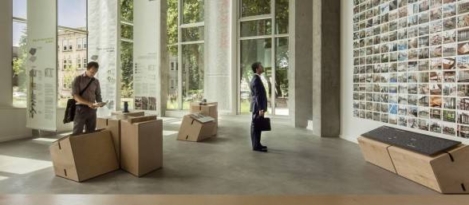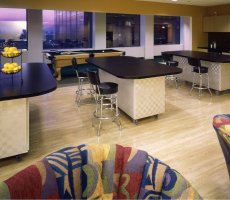April 24, 2015
Are these this year’s ten most sustainable buildings in North America? 0
 The American Institute of Architects (AIA) and its Committee on the Environment (COTE) have selected what they claim are the nation’s top ten examples of sustainable architecture and ecological design projects. The COTE Top Ten Awards program, now in its 19th year, claims to be the profession’s most rigorous recognition program for sustainable buildings. The program highlights projects that are the result of an “integrated approach to architecture, natural systems and technology … which make a positive contribution to their communities, improve comfort for building occupants and reduce environmental impacts through strategies such as reuse of existing structures, connection to transit systems, low-impact and regenerative site development, energy and water conservation, use of sustainable or renewable construction materials, and design that improves indoor air quality.”
The American Institute of Architects (AIA) and its Committee on the Environment (COTE) have selected what they claim are the nation’s top ten examples of sustainable architecture and ecological design projects. The COTE Top Ten Awards program, now in its 19th year, claims to be the profession’s most rigorous recognition program for sustainable buildings. The program highlights projects that are the result of an “integrated approach to architecture, natural systems and technology … which make a positive contribution to their communities, improve comfort for building occupants and reduce environmental impacts through strategies such as reuse of existing structures, connection to transit systems, low-impact and regenerative site development, energy and water conservation, use of sustainable or renewable construction materials, and design that improves indoor air quality.”






























April 23, 2015
How local approaches to ergonomics redefine worldwide standards
by Mark Eltringham • Comment, Facilities management, Furniture, Workplace design
(more…)